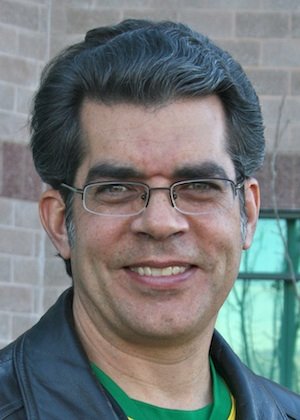
With the passage of the cherry and stone fruit referendum, Des Layne, who joined WSU February 1 in the new position of tree fruit extension leader, will represent Washington’s entire tree fruit industry.
Cherry and stone fruit growers have voted to pay a special assessment to fund research at Washington State University.
In a recent referendum, 59 percent of cherry growers balloted voted in favor of paying a special assessment of $4 a ton and 68 percent of the stone fruit producers voted to pay a $1-a-ton special assessment. Those rates are the same as the regular research assessment that they pay.
The Washington State Department of Agriculture mailed out 1,494 ballots to cherry growers, of which 38 percent were returned. Of the 139 ballots that went out to stone fruit growers, 35 percent were returned.
In 2011, in an industrywide referendum, a majority of apple and pear growers voted in favor of a special assessment, but only 44 percent of the cherry and stone fruit growers voted in favor. The assessment on apples and pears will raise $27 million over the next eight years or so and will be used to create endowed chair positions focusing on research areas of specific interest to the pome fruit industry, create new positions in information and technology transfer, and expand research orchards in Prosser and Wenatchee.
With cherry and stone fruit growers now paying the special assessment, another $5 million will be raised to enhance these efforts, although Jim McFerson, manager of the Washington Tree Fruit Research Commission, stressed that funds will be allocated based on the crops on which they were collected.
“I think this represents an investment in a shared future in which all of the Washington tree fruit industries will participate as we enhance the capacity of WSU for research and outreach activities of importance to the industry,” he said. “It does make it much easier logistically, fiscally, and operationally.”
McFerson said he was thrilled by the margin by which the referendums passed, particularly as returns on cherries were relatively poor last season.
“They’ve had a couple of tough years, and to tax themselves for the future and for their legacy—it’s a wonderful thing,” he said.
As a result of the special assessments on apple and pears, which went into effect last fall, WSU has already appointed Dr. Desmond Layne to a new position of tree fruit extension leader, and Dr. Stefano Musacchi will join WSU in August in a new endowed pomologist position.
Jake Gutzwiler, chair of the WSU Endowment Advisory Committee, which has been helping to guide WSU’s decisions about how to direct the special assessment funds, said with the additional $5 million commitment from cherry and stone fruit growers, WSU can ensure that the new positions represent the full Washington tree fruit industry.
B.J. Thurlby, president of the Washington State Fruit Commission, said he felt that the cherry and stone fruit growers were better informed about the need for the special assessment when they voted in the most recent referendum.
“This is going to end up being a moneymaker for the growers five to ten years from now,” he said. “It makes our industry stronger.”
Gip Redman, a cherry grower and Fruit Commission chair, said he was pleased that the entire Washington tree fruit industry is now involved in enhancing the efforts at WSU’s research and extension centers at Prosser and Wenatchee, which will keep the industries globally competitive. “We are thrilled growers affirmed the importance of this investment.”

Leave A Comment